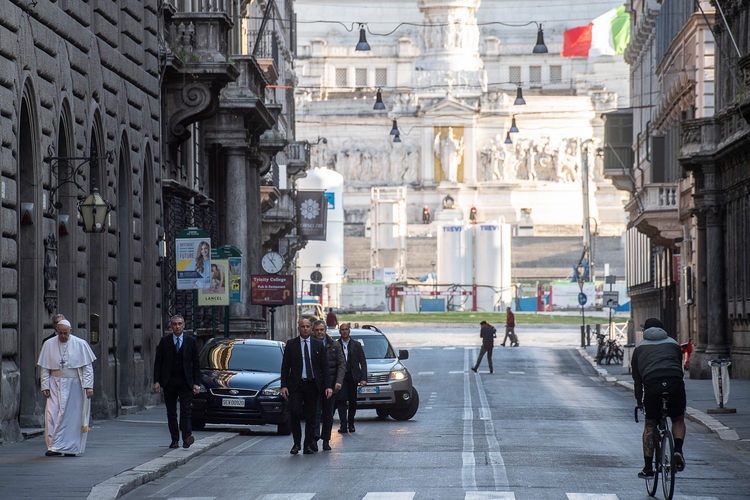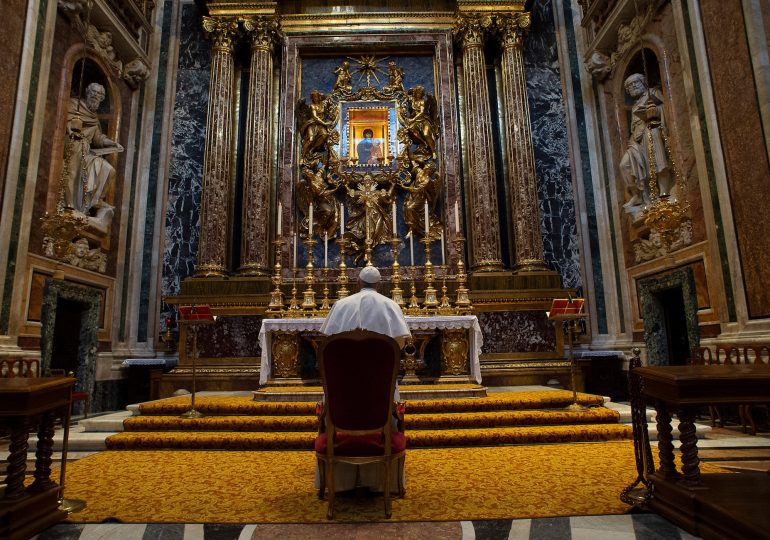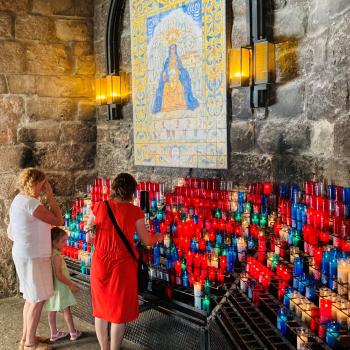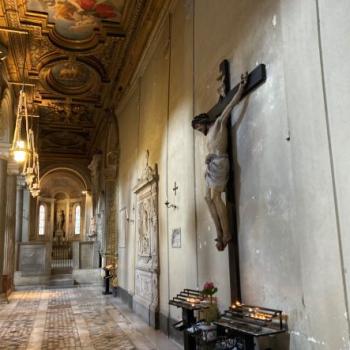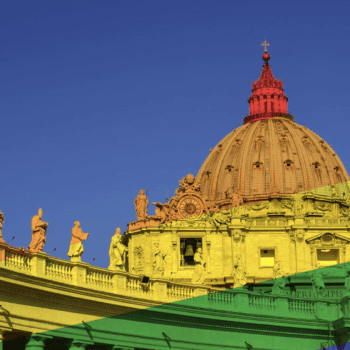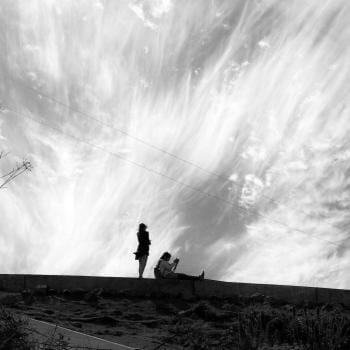“Do you believe in God, doctor?” “No, but what does that really mean? I’m fumbling in the dark, struggling to make something out. But I’ve long ceased finding that original.” “Isn’t that it, the gulf between Paneloux and you?” “I doubt it. Paneloux is a man of learning, a scholar. He hasn’t come in contact with death; that’s why he can speak with such assurance of the truth, with a capital T. But every country priest who visits his parishioners and has heard a man gasping for breath on his deathbed thinks as I do. He’d try to relieve human suffering before trying to point out its excellence.” Rieux stood up; his face was now in shadow.
Over the past two weeks, countless articles have been published about Albert Camus’ 1947 novel The Plague. Some see in it an eerie prophecy of the current pandemic. Others see it as a map guiding our way through this bleak moment.
I personally have been most fixated on the character of Father Paneloux, the local Jesuit priest, who is symbolic of sclerotic, moralistic religiosity–of a vengeful God who is distant from His creation. His God is all doctrine without mystery, words without flesh.
His first homily after the outbreak of the plague warns the flock to repent for their sins and turn back to God, for the plague is a punishment for their iniquity and impiety:
Calamity has come on you, my brethren, and, my brethren, you deserved it. The first time this scourge appears in history, it was wielded to strike down the enemies of God. Pharaoh set himself up against the divine will, and the plague beat him to his knees. Ponder this well, my friends, and fall on your knees. If today the plague is in your midst, that is because the hour has struck for taking thought. The just man need have no fear, but the evildoer has good cause to tremble. You fondly imagined it was enough to visit God on Sundays, and thus you could make free of your weekdays. You believed some brief formalities, some bendings of the knee, would recompense Him well enough for your criminal indifference. But God is not mocked. These brief encounters could not sate the fierce hunger of His love. He wished to see you longer and more often; that is His manner of loving and, indeed, it is the only manner of loving. And this is why, wearied of waiting for you to come to Him, He loosed on you this visitation. Now you are learning your lesson, the lesson that was learned by Cain and his offspring, by the people of Sodom and Gomorrah, by Job and Pharaoh, by all that hardened their hearts against Him. Now, at last, you know the hour has struck to bend your thoughts to first and last things.
During this past week, I’ve also been fixated on the words of another Jesuit. The resonances between the Pope’s words this week and those of Paneloux are uncanny, but the essence of their messages and the way they deliver them are radically different.
On Thursday, Francis began his homily in the Casa Santa Marta recalling the lyrics of a song his parents sang to him as a child in Argentina: “Return to your daddy, he will still sing you a lullaby.” The words of Carlo Buti’s 1939 song are an echo of the day’s first reading from the prophecy of Hosea. The Pope commented, “Lent is the time to enter into ourselves and to remember the Father and return to our Daddy. ‘But, Father, I’m ashamed to go back because, you know, Father I’ve …done so many things wrong’. What will the Lord say? ‘Return. I will heal their defection. I will love them freely; for my wrath is turned away from them (Hosea 14:4).’ Return to your Father. The God of tenderness will heal us.”
For both Francis and Paneloux, the plague is a time to repent and turn back to God. It is also a time to pray. The Pope also asked that all Catholics pray the rosary at the same hour on Thursday. But for Francis, unlike Paneloux, this call to prayer was not to stave off the wrath of God, but to enter more deeply in communion with Him and with the suffering of our fellow human beings. “How much need we have to be truly consoled, to feel enveloped by his presence of love! Let’s be close to one another, exercising first of all charity, understanding patience and forgiveness.” He asked that those praying the rosary that evening light a candle in their window as a symbol of solidarity with others.
Though both the Pope and Paneloux see the plague as an invitation to pray, repent, and turn back to God, the Pope never attempts to offer an explanation for the suffering brought on by the current pandemic. Instead, he embraces the mystery of it. Rather than attribute it to God’s wrath, he has decided to enter into the mystery of suffering by praying in solidarity with the world, and begging God to show His face in our midst. Francis’ words may echo those of Paneloux, but he presents these words as a true father, as a witness. His moral authority is based not on condemnation, but on teaching by example.
Francis has shown us this week that the true position of humanity in front of the suffering that God allows is not one of fear or guilt, but of begging. His “pilgrimage” down the streets of Rome to two miraculous shrines, while the rest of the city was on lockdown, proved himself a true beggar, at one of the cries of the people. His blunt and humble admission that he “prayed to God to end the Coronavirus” was perhaps his greatest gesture of being one with the suffering of the world.
By taking on the position of the beggar, Francis is teaching us how to open our hearts to God and to the needs of our fellow human beings. The humility of the beggar diverts him from making distinctions between the believer and non-believer.
We are all human beings and, as human beings, we are all in the same boat. And nothing that is human can be alien to a Christian. Here one cries because one suffers. We have in common our humanity and suffering…. We should not make a difference between believers and non-believers. Let us go to the roots: our humanity. Before God, we are all his children. There will not long be ‘the other’ but the ‘us,’ because we can only get out of this situation all together.
Dr. Rieux, the main character of The Plague, finds Fr. Paneloux’s homily unconvincing. He lacks “the smell of the flock,” which Francis exhorted priests to take on during the beginning of his papacy. Francis is a witness to how much we need priests who are true fathers that teach by example, showing us what it looks like to become a beggar, to pray and return to God’s mercy, to open our hearts to Him and to our brothers and sisters. Unlike Paneloux who distances himself from the suffering of the people, we need priests to follow the example of Jesus…priests who take the risk of “entering the flesh” of suffering, embracing it in all its mystery, “fumbling in the dark” with the rest of humanity, and directing our gaze to the eyes of the merciful Father.



